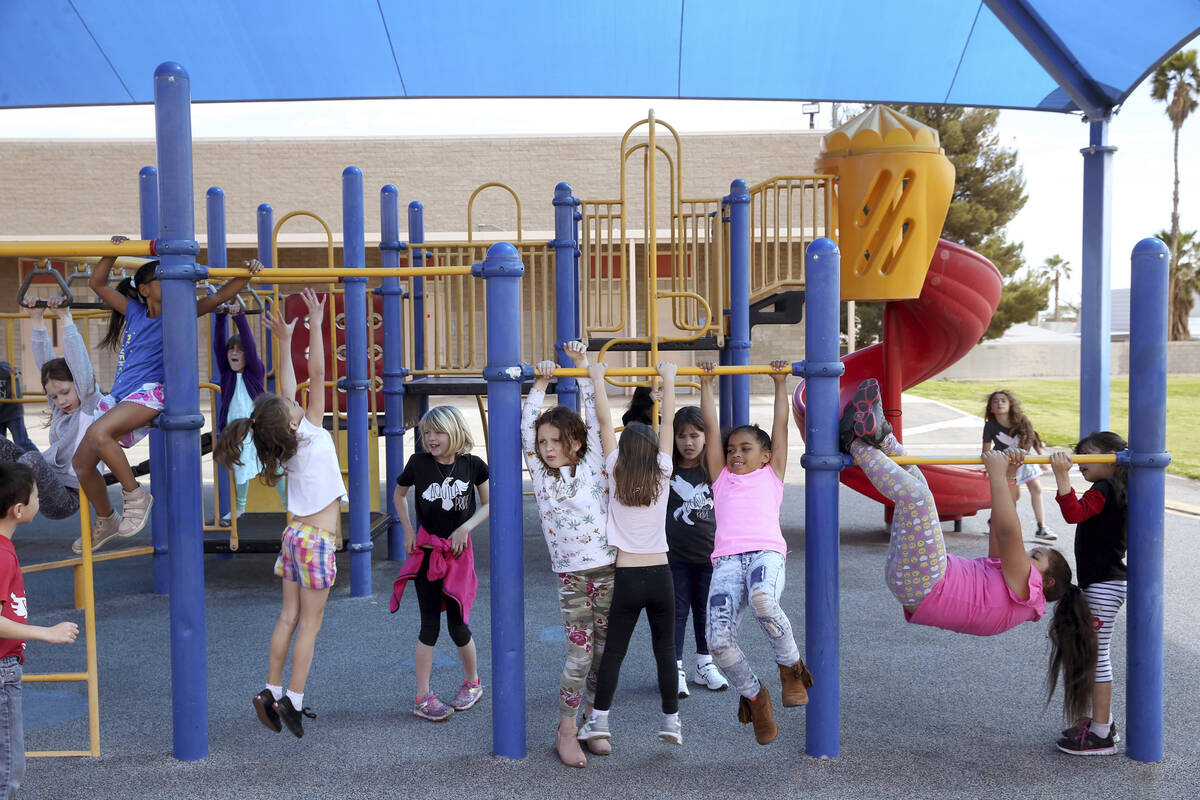VICTOR JOECKS: Why boys underperform girls in school
Anyone who thinks this is a patriarchal society needs to look at high school graduation rates.
The Associated Press recently reported that boys have a lower graduation rate than girls nationwide. In 2018, one researcher estimated girl graduates outnumbered boy graduates by 45,000. You can see this disparity in the Clark County School District, too. For the 2021-22 school year, the female graduation rate was 84.3 percent. For males, it was just 78.5 percent.
Girls also earned 1,543 advanced diplomas, compared with 914 for boys.
One supposed expert consulted by the AP said the explanation was economic. Male dropouts, according to Beth Jarosz, a program director at research organization PRB, can earn as much as a woman with a year or two of college. Left unsaid was that the mythical gender pay gap all but disappears when adjusted for factors such as hours worked, profession and a job’s dangers. That’s what you would expect in a country where pay discrimination by sex has been illegal for decades.
But did you catch the implication? The cause of boys doing poorly in school is the patriarchy. Never mind that not having a high school diploma decreases average lifetime earnings and makes men more likely to wind up in jail. Seems like an odd strategy for maintaining male dominance over society.
To help boys achieve more, you need to properly identify why they’re struggling. It starts with family. In 2019, Pew found that the United States had the highest share of children raised in a single-family home in the world. Statistically speaking, that’s not great for children, but it’s particularly bad for boys. Having a father around reduces behavioral problems in boys. It significantly lowers the likelihood of future incarceration. That matters, because male prisoners outnumber females by more than 13-to-1.
Growing up in a two-parent household also significantly reduces the child poverty rate. Child poverty is bad for all kids, but it disproportionately hurts boys academically.
Next, consider the classroom environment. Young students are expected to sit still, listen and write. That’s cruel and unusual punishment for many little boys, who burst with boundless energy. Their favorite subject is recess. But in many schools, there is only one recess a day. At the risk of dating myself, I had three recesses and a lunch break in elementary school. No wonder boys today are twice as likely to be diagnosed with ADHD. Schools need to bring back recess.
As boys grow up, schools and popular culture bombard them with terrible messages. They’re taught to be ashamed of their male privilege, even though their female peers have long passed them by academically. They’re told their natural tendencies — physical strength, competitiveness, toughness — aren’t strengths to be nurtured. Instead, they should be repressed to avoid toxic masculinity. “Girl power” is a message of empowerment. “Boy power” isn’t discussed and probably would be condemned as misogyny.
These won’t be easy problems to fix. But any solution must start by recognizing why boys are doing far worse academically than girls.
Victor Joecks’ column appears in the Opinion section each Sunday, Wednesday and Friday. Listen to him discuss his columns each Monday at 7 a.m. with Kevin Wall on AM 670 KMZQ Right Talk. Contact him at vjoecks@reviewjournal.com or 702-383-4698. Follow @victorjoecks on X.





























